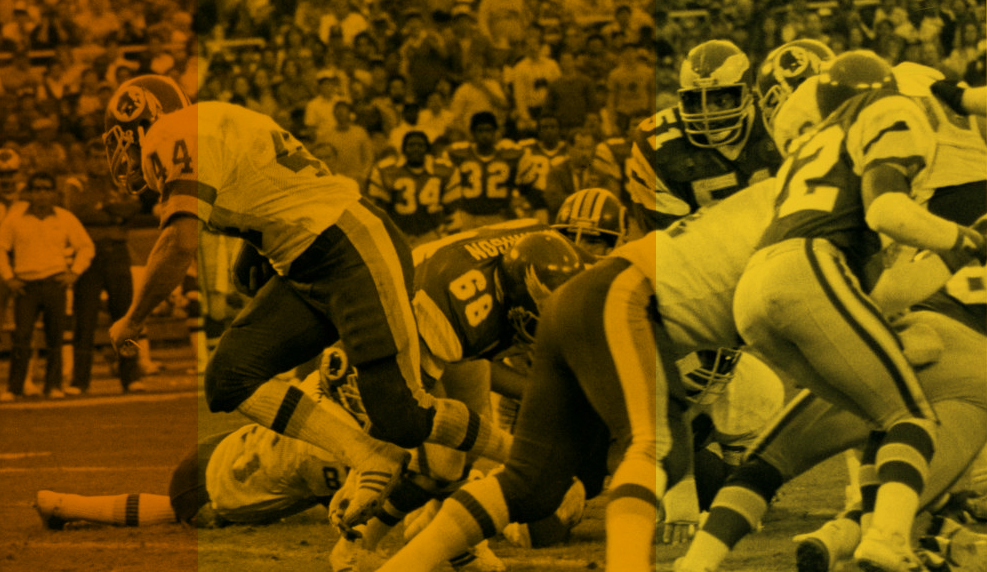They Made the League What it is Today, but NFL Isn’t Fair to Pre-1993 Players
By Elvin Bethea
November 23, 2018
I had a beautiful ride playing the sport I love, but I was never been alone. For 16 seasons as a defensive lineman with the Houston Oilers, I was pushed to succeed next to athletes just as determined to win as I was, no matter the setbacks our franchise faced. And each week, opponents forced me to be stronger, faster, more explosive — to be better. I give credit to my teammates and opponents for allowing me to develop into the player I was able to become and for allowing me to reach the Pro Football Hall of Fame.
In the years since my retirement, my admiration for these players has not waned. In fact, it has grown. They are the reason I have joined a new team: Fairness for Athletes in Retirement or FAIR. FAIR is a nonprofit organized to represent the approximately 4,000 NFL players who built the league and retired before 1993. As a group of athletes, we experience a profound disparity when it comes to the retirement benefits we receive from the NFL and the National Football League Players Association .
The 1993 collective bargaining agreement created a divide of haves and have-nots among NFL retirees. It continued a low, fixed pension benefit for pre-1993 retirees — three times less than what today’s players receive — and excluded a cost-of-living adjustment for 18 years. For example, my friend and fellow Hall of Famer Joe DeLamielleure receives just over $30,000 for his 13-years of service to the league. The 1993 CBA also disqualified pre-1993 players from added retirement benefits such as a 401(k), a health reimbursement account, the group medical insurance options and the NFL life insurance plan.
Three decades after my last season, the physical tolls of professional football have added up and resulted in back, neck and knee surgeries. I’m always at the doctor (once or twice a week), but I still consider myself one of the lucky ones. Life after football gave me a good job at Anheuser-Busch, a company that helped cover the costs of my medical care post-football and helped stabilize my retirement plans.
So many NFL teammates I know didn’t have the financial opportunities or medical coverage I’ve enjoyed. For most NFL players, injuries make any career past the age of 55 nearly impossible. Instead, many of the players you once cheered on the field have become dependent on their friends, family and government assistance just to make ends meet. At 63, DeLamielleure’s wife Gerri was putting in four days a week as a nurse to make sure Joe and the family was insured.
It’s not right; it’s not fair, and it’s past time the NFL recognize this disparity and support the pre-1993 players who made the NFL into what it is today. While the NFL rakes in record profits and current players sign lucrative contracts and guaranteed benefits, pioneer players who laid its foundation lack adequate reimbursement in retirement in comparison to other professional sports leagues. Compared to Major League Baseball and National Basketball Association retirees of the same era, pre-1993 NFL players receive less than one-fourth of their retirement benefits.
With the upcoming negotiations between the NFL and the NFLPA in 2020, FAIR is the only group dedicated to advocating for all retired NFL players who retired before 1993. It is why I am proud to be a member of its team and why I am proud to advocate and fight for pension parity for all those players who gave me the chance to be not just the athlete but man I am today. All pre-1993 players sacrificed and pursued greatness not only for themselves and their teammates, but also the teams and league that have become American staples. And all pre-1993 players deserve to live their remaining years with dignity and the knowledge that the league they fought for is now fighting for them.
FAIR’s request to the NFL and NFLPA is simple: Do the right thing by your former team members and their families, and ensure pension parity for pre-1993 retirees.


